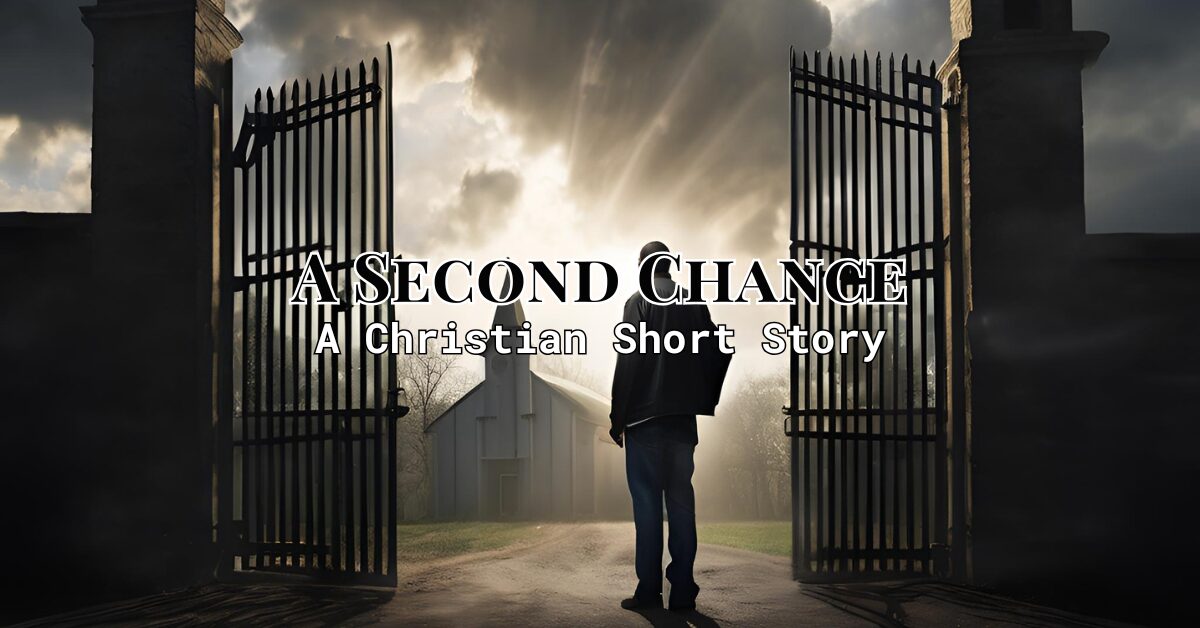In the mosaic of parables taught by Jesus, The Persistent Widow Parable, as found in Luke 18:2-8, stands out for its compelling message on the power of perseverance in prayer and the assurance of divine justice. This narrative introduces us to a widow, emblematic of vulnerability and desperation, who relentlessly seeks justice from an indifferent judge. Through her unwavering determination, she ultimately secures the justice she seeks, serving as a profound metaphor for the spiritual tenacity encouraged in the lives of believers.
The Persistent Widow Parable goes beyond a mere lesson in persistence; it delves into the nature of God’s responsiveness to His people, contrasting the uncaring judge with a God who is both just and compassionate. This parable challenges us to examine our own prayer lives, encouraging us not only to persist in our requests to God but also to trust in His timing and His unwavering commitment to righteousness.
As we explore The Persistent Widow Parable, we are invited to reflect on our understanding of prayer, justice, and faith. This story reassures us that, unlike the unjust judge, God hears the cries of His people and is moved by their pleas. It prompts believers to maintain their faith and persistence, even when answers seem delayed or justice appears distant.
Join us as we delve into The Persistent Widow Parable, seeking to draw out its rich lessons for our daily lives. Through this exploration, we aim to uncover the encouragement it offers to all who feel weary in their petitions, reminding us of the importance of steadfastness in faith and the assurance of God’s attentive care for His children.
Parable of Jesus Christ: The Persistent Widow
The Persistent Widow Parable, Luke chapter 18, verses 2-8 (WEB):
“2 saying, ‘There was in a certain city a judge who didn’t fear God, and didn’t respect man. 3 A widow was in that city, and she often came to him, saying, “Defend me from my adversary!” 4 He wouldn’t for a while, but afterward he said to himself, “Though I neither fear God nor respect man, 5 yet because this widow bothers me, I will defend her, or else she will wear me out by her continual coming.”‘
6 The Lord said, ‘Listen to what the unrighteous judge says. 7 Won’t God avenge his chosen ones who are crying out to him day and night, and yet he is patient with them? 8 I tell you that he will avenge them speedily. Nevertheless, when the Son of Man comes, will he find faith on the earth?'”
This parable emphasizes the importance of persistence in prayer and the assurance that God hears and responds to the cries of His people, contrasting the unrighteous judge’s reluctant justice with God’s faithful commitment to His chosen ones.
Also Read: The 45 Parables of Jesus
Interpretation of The Persistent Widow Parable

The Persistent Widow Parable, as recounted in Luke 18:2-8, is a rich narrative that offers profound insights into the nature of prayer, faith, and divine justice. This story contrasts the character of an indifferent judge with the compassionate nature of God, teaching us about the efficacy of persistence in prayer and the certainty of God’s justice for His people.
The Virtue of Persistence
Persistence in Prayer: At the core of The Persistent Widow Parable is the widow’s unwavering determination to seek justice against her adversary. Despite repeated rejections, she continues to approach the judge, demonstrating a persistence that eventually compels him to grant her request. This persistence is emblematic of the tenacity believers are called to exhibit in their prayer lives, underscoring the importance of not losing heart or giving up, even when answers seem delayed.
God’s Response to Persistent Prayer: The parable draws a stark contrast between the unjust judge and God. While the judge responds out of irritation and a desire for self-relief, God is portrayed as attentive and just, eager to respond to the cries of His chosen ones. This assures believers that their persistence in prayer is not in vain but is heard by a God who is both willing and able to act on their behalf.
The Assurance of Divine Justice
Certainty of God’s Justice: The widow’s pursuit of justice serves as a metaphor for the believer’s pursuit of divine intervention and righteousness. The parable reassures us that God is just and will bring about justice for His people. Unlike the worldly systems that may fail the vulnerable, God’s justice is unfailing and will be manifested in His perfect timing.
The Role of Faith: Jesus concludes the parable by questioning whether the Son of Man will find faith on the earth upon His return, linking the concept of persistent prayer with faith. This suggests that true persistence in prayer is rooted in faith in God’s character and His promises. The Persistent Widow Parable challenges believers to maintain their faith, trusting in God’s justice and provision, even in the face of adversity or delay.
Reflections on Prayer and Action
Prayer as an Expression of Faith: The persistent widow’s actions remind us that prayer is not a passive act but an active expression of faith. It is through persistent prayer that we engage with God, expressing our trust in His sovereignty and our reliance on His provision.
Encouragement to Act Justly: While the primary focus is on persistence in prayer, the parable also serves as a reminder of the importance of acting justly towards others. By highlighting the widow’s quest for justice, Jesus encourages His followers to be agents of justice in the world, reflecting God’s righteousness in their dealings.
The Persistent Widow Parable beautifully illustrates the power of persistence in prayer and the certainty of God’s justice. It encourages believers to approach God with relentless faith, trusting in His goodness and His commitment to right every wrong. Through this parable, Jesus invites us to deepen our understanding of prayer, to cultivate a steadfast faith, and to embrace the assurance that our cries for justice are heard by a compassionate and just God.
Also read: Parable of Jesus: The Rich Man and Lazarus
Practical Application of The Persistent Widow Parable in Our Daily Lives

How can you apply The Persistent Widow Parable in practically in your daily life? Let’s find out.
The Persistent Widow Parable, found in Luke 18:2-8, is a powerful narrative that conveys the virtues of persistence and faith, especially in the context of prayer and seeking justice. Its teachings can be applied in numerous ways to our daily lives, encouraging us to remain steadfast in our faith and diligent in our prayers, regardless of the circumstances we face. Here’s how we can incorporate the lessons from the Persistent Widow Parable into our everyday actions and attitudes.
Cultivating Persistence in Prayer
Consistent Prayer Practice: The Persistent Widow Parable teaches us the importance of consistent prayer. Just as the widow kept coming to the judge, we too are encouraged to come to God with our requests regularly, not giving up when we do not see immediate answers. Establishing a daily prayer routine can help cultivate this habit of persistence.
Trusting in God’s Timing: The parable underscores the need to trust in God’s timing. While the widow had to wait for the judge’s decision, her persistence was ultimately rewarded. Similarly, we must trust that God hears our prayers and will answer them in His perfect timing, even if it’s not as soon as we might hope.
Embracing Faith in Action
Acting on Our Prayers: The widow’s actions remind us that prayer is often coupled with action. While we bring our requests to God, we are also called to be active participants in His plans. This might mean taking practical steps towards the goals we are praying about, showing faith through our deeds.
Advocating for Justice: The widow sought justice against her adversary, reflecting a pursuit that many find themselves in today. We can apply this parable by advocating for justice in our communities, whether that means supporting those who are marginalized, volunteering for causes that seek to rectify injustices, or using our voices to raise awareness about issues that align with God’s heart for justice.
Maintaining Faith Amid Delay
Strengthening Our Faith: The Persistent Widow Parable encourages us to strengthen our faith, especially when facing delays or challenges. By remaining steadfast in our beliefs and continuing to pray, even when outcomes seem uncertain, we develop a deeper trust in God’s sovereignty and goodness.
Finding Community Support: Just as the widow might have felt alone in her quest, we too can feel isolated in our struggles. Seeking support from a faith community can provide encouragement and strength to continue praying and believing for breakthroughs, reminding us that we are not alone in our journey.
Reflection and Learning
Reflecting on Our Desires: The widow was clear in her desire for justice. Similarly, this parable invites us to reflect on the desires and requests we bring to God, encouraging us to align our prayers with His will and purposes, and to seek what is ultimately for our good and His glory.
Learning from Delay: The parable also teaches us that delay is not denial. Through waiting, we can learn patience, humility, and trust, growing in character and faith. This perspective helps us to see delays as opportunities for growth rather than mere obstacles.
The Persistent Widow Parable offers rich lessons for our daily lives, emphasizing the power of persistence in prayer, the importance of faith in action, and the virtues of patience and trust in God’s timing. By applying these lessons, we can navigate our spiritual journeys with resilience and hope, inspired by the widow’s example to persist in our requests and trust in the loving response of our Heavenly Father.
Conclusion

In wrapping up our exploration of The Persistent Widow Parable, we find ourselves deeply moved by the resilience, determination, and faith embodied by the widow’s character. Her relentless pursuit of justice serves not only as a testament to her own steadfastness but as a powerful illustration of the kind of persistent faith and prayer that Jesus encourages among His followers. This parable challenges us to examine our own prayer lives, urging us to approach God with the same tenacity and trust displayed by the widow.
The Persistent Widow Parable beautifully underscores the assurance that God hears our prayers and is moved by them. Unlike the indifferent judge, God is just, compassionate, and eager to respond to His children. This narrative invites us to persist in our prayers, not as a means to wear down a reluctant deity, but as an expression of our faith in a loving God who values our trust and dependence on Him.
As we apply the lessons of The Persistent Widow Parable to our daily lives, let us be inspired to cultivate a spirit of perseverance in our prayers, advocacy for justice, and unwavering faith in God’s timing. Let this parable encourage us to never lose heart, reminding us of the power of persistent prayer and the promise of divine justice.
In conclusion, The Persistent Widow Parable stands as a beacon of hope and a call to action for believers everywhere. It teaches us that in the economy of God’s kingdom, persistence pays off, faith matters, and justice prevails. May we carry forward the spirit of the persistent widow, confident in the knowledge that our prayers are heard and that God is always at work on our behalf.








